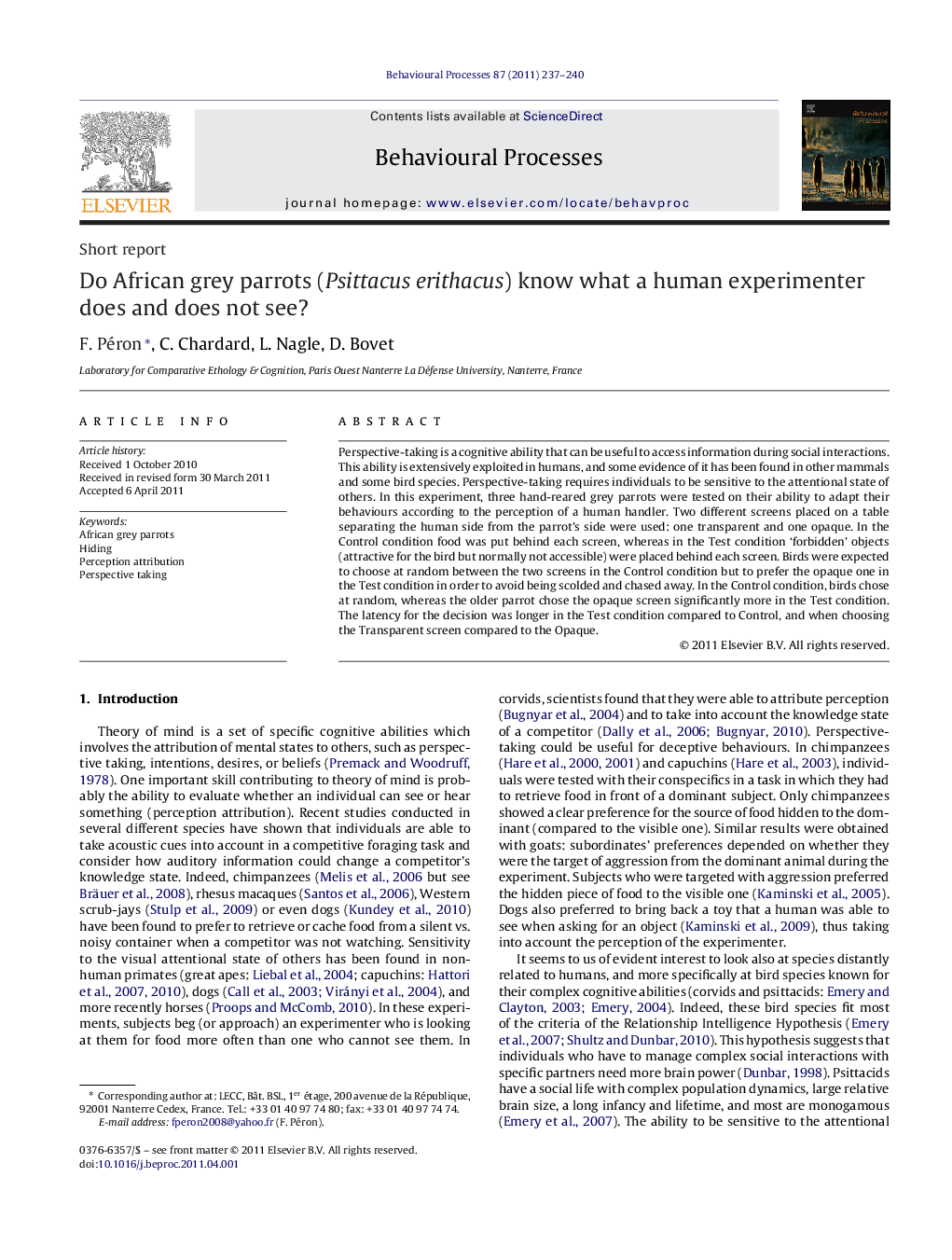| Article ID | Journal | Published Year | Pages | File Type |
|---|---|---|---|---|
| 2427289 | Behavioural Processes | 2011 | 4 Pages |
Perspective-taking is a cognitive ability that can be useful to access information during social interactions. This ability is extensively exploited in humans, and some evidence of it has been found in other mammals and some bird species. Perspective-taking requires individuals to be sensitive to the attentional state of others. In this experiment, three hand-reared grey parrots were tested on their ability to adapt their behaviours according to the perception of a human handler. Two different screens placed on a table separating the human side from the parrot's side were used: one transparent and one opaque. In the Control condition food was put behind each screen, whereas in the Test condition ‘forbidden’ objects (attractive for the bird but normally not accessible) were placed behind each screen. Birds were expected to choose at random between the two screens in the Control condition but to prefer the opaque one in the Test condition in order to avoid being scolded and chased away. In the Control condition, birds chose at random, whereas the older parrot chose the opaque screen significantly more in the Test condition. The latency for the decision was longer in the Test condition compared to Control, and when choosing the Transparent screen compared to the Opaque.
► African grey parrots tested on their capacity to use human-given cues in a foraging task. ► The birds are sensitive to human attentional state. ► Not possible to conclude between perception or perspective taking abilities.
